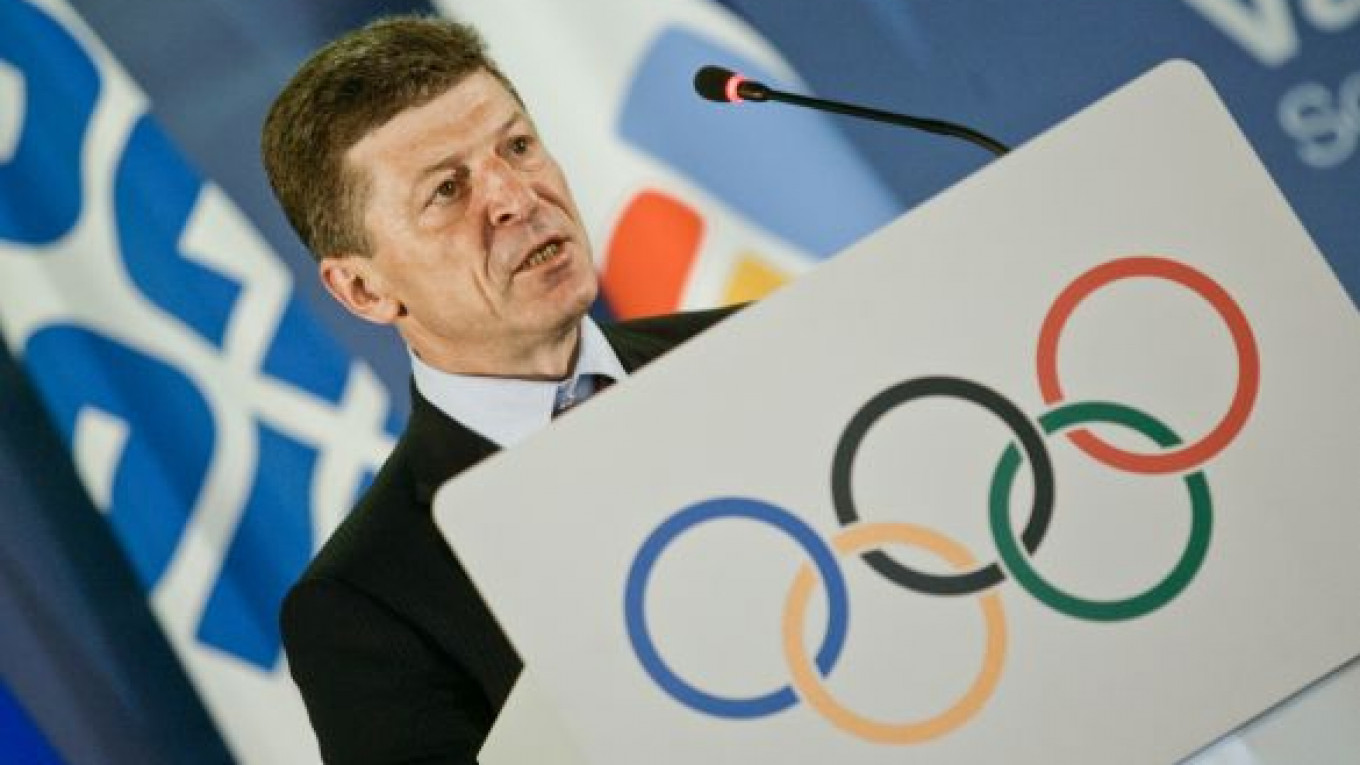Members of Russia's official Olympic delegation to London will find their summer a bit drier than usual.
Alcoholic drinks will be banned at any event organized by the Russian delegation in which athletes or delegation officials participate, Kommersant reported, citing information from the minutes of a meeting led by Deputy Prime Minister Dmitry Kozak, the official in charge of the team's trip to London.
Kozak representative Ilya Dzhus confirmed the information to Kommersant. "Olympic values are not commensurate with using alcohol," he said.
The ban applies to the Russian Olympic Committee, the Sochi 2014 organizing committee, the All-Russian Association of Summer Olympic Sports and the company Bosco di Ciliegi, the official outfitter of the Olympic team.
But a federal official in the meeting with Kozak suggested that organizers can make alcoholic beverages available at parties for their corporate clients and sponsors, as long as athletes or members of the official delegation do not participate.
Events hosted by Russia will primarily take place in four "hospitality houses," including a Russia Sochi Park house across from Royal Albert Hall near Hyde Park that will house the Olympic committee and Sochi 2014.
Bosco, which could operate event space in the Russia Sochi Park house, has said it has not yet decided whether or not it will make alcohol available at their events.
The measures to eliminate alcohol are being taken after Russia's disappointing haul of only 15 medals in the 2010 Vancouver Olympic Games instead of the expected 30 to 50.
In those games, the Russian House gained a reputation as one of the loudest, and vodka from producer Russian Standard was "accessible to all guests, participants and Olympic organizers" at the house, a news release from the company said, Kommersant reported.
The dry law will be in effect from July 27 to Aug. 12.
A Message from The Moscow Times:
Dear readers,
We are facing unprecedented challenges. Russia's Prosecutor General's Office has designated The Moscow Times as an "undesirable" organization, criminalizing our work and putting our staff at risk of prosecution. This follows our earlier unjust labeling as a "foreign agent."
These actions are direct attempts to silence independent journalism in Russia. The authorities claim our work "discredits the decisions of the Russian leadership." We see things differently: we strive to provide accurate, unbiased reporting on Russia.
We, the journalists of The Moscow Times, refuse to be silenced. But to continue our work, we need your help.
Your support, no matter how small, makes a world of difference. If you can, please support us monthly starting from just $2. It's quick to set up, and every contribution makes a significant impact.
By supporting The Moscow Times, you're defending open, independent journalism in the face of repression. Thank you for standing with us.
Remind me later.






